Dr Aiste Kiltinaviciute - School of Languages Literatures & Culture
After studying for her BA (English, 2017) and her MPhil (European, Latin American and Comparative Literatures and Cultures, 2018) at the University of Cambridge, Aistė completed her PhD in Italian at Cambridge under the direction of Prof. Heather Webb in 2022. In 2022, she was Research Fellow at Vilnius University and Affiliated Lecturer at the University of Cambridge.
Find Out More
Elaine O'Callaghan - School of Applied Social Studies
Dr. Elaine O'Callaghan (BCLG, PhD) works as a researcher on the ID+ Project at UCC, focusing on the right to inclusive education for people with intellectual disabilities in higher and further education. Prior to this, Elaine worked with Professor Conor O'Mahony in his role as the Irish Government appointed Special Rapporteur on Child Protection.
Find Out More
Dr Julius-Cezar Macarie - ISS21 Institute For Social Science in the 21st century
As a night ethnographer and migration scholar, for the past decade Dr Julius-Cezar Macarie (or MacQuarie) has reached out to migrant nightshift workers because he is concerned with their invisibility from public debates, political agendas, and scholarly fields. He founded the NIGHTWORKSHOP and campaigns for migrants’ rights with the NIGHTWORKER CHARTER.
Find Out More
Gustavo Souza Marques - School of Film, Music and Theatre, Department of Music
Gustavo Souza Marques is a postdoctoral researcher for the CIPHER Hip-Hop Interpellation project; a five-year, 2-million euro study of Global Hip-Hop knowledge flows on six continents, funded by the European Research Council (ERC). Dr. Marques works as a Latin Americanist covering the Caribe and Americas (Central and South) for the project which aims to create a collaborative hip-hop platform on the Internet.studies
Find Out More
Dr James Chetwood - School of English and Digital Humanities
James is a Government of Ireland Postdoctoral Fellow in the Department of Digital Humanities. He completed a PhD at the University of Sheffield (2017) which re-examined the transformation of the personal naming system of medieval England between c.800 and c.1300.
Find Out More
Dr Donna De Groene - School of the Human Environment: Geography, Archaeology and Classics
Find Out More
Dr Miguel Garcia Godinez - School of Society, Politics and Ethics
Miguel Garcia is an IRC Postdoctoral Research Fellow in Philosophy at UCC. Before coming to Ireland, he held a Postdoctoral Research Fellowship at the Institute for Philosophical Research, UNAM. He has a PhD in Law from the University of Glasgow, where his project explored the institutional nature of law and proposed a novel ontological account. Miguel’s research interests lie at the intersection of legal philosophy, social ontology, and metaethics.
Dr Michael Kurzmeier - Shool of English and Digital Humanities
Michael Kurzmeier is a recent PhD graduate in Digital Humanities and Media Studies. His work revolves around the intersections of technology and society. His IRC-funded Phd thesis Political Expression in Web defacements investigates political expression through hacking and introduces novel methods for retrieval and analysis of this special kind of archived web material.
Dr Gustavo Souza Marques - School of Film, Music & Theatre
Dr James L Smith - School of English and Digital Humanities
Dr Carolina Santos - School of Applied Psychology
Carolina Santos is as a Postdoctoral Researcher at the School of Applied Psychology. An architect and urban planner with a transdisciplinary background working on artistic performances in the public spaces of contemporary cities, she utilises an artistic perspective to gain deeper insights into the built environment and how it applies in daily life.
Find Out More
Dr Claire Nolan - School of the English and Digital Humanities
Dr Claire Nolan's work is situated within the purview of the public, medical and environmental humanities. Claire’s doctoral research (University of Reading) focused on heritage experience and the capacity for the historic environment to promote individual wellbeing in the present day. She has recently produced a number of papers on this topic, including the co-authored Historic England (2018) Report, Wellbeing and the Historic Environment.
Find Out More
Dr Jemima Hodgkinson - School of Languages Literatures & Cultures
Jemima Hodgkinson received her PhD in French from the University of Liverpool. She was awarded the 2022 Atlantic Studies Early Career Prize for her article ‘The Mediated Text: Transatlantic Circulation among Periodicals of Interwar African American Poetry’. Her Postdoctoral research highlights the unique role played by newspapers and magazines in the cultural development of the transatlantic African diaspora during the 1920s and 1930s.
Find Out More
Dr Shyamasundar Lakshmipuram Bharathanarayan - School of Film, Music & Theatre
Shyam is a Research Fellow at the Department of Music, UCC and part of the ERC CIPHER project. This project aims to revolutionize research on intertextualities, translation, and knowledge production in Hip Hop, globally. With a PhD earned at VTU, India, his expertise runs deep in the realms of AI and Big Data.
Find Out More
Dr Philip Murphy - School of Society, Politics and Ethics
Philip Murphy is a post-doctoral researcher in the Department of Government and Politics, UCC. As an IRC funded scholar, his doctoral thesis researched the socialisation of political efficacy among adolescents. His publications and research interests include youth political engagement, political socialisation, political education, and deliberative practice.
Find Out More
Dr. Oleksandr Korotaiev - School of Society, Politics and Ethics
Dr. Oleksandr Korotaiev, a Ukrainian Sanctuary Fellow, will join the History Declassified Project based in the Study of Religions Department and the Future Humanities Institute. His research focuses on the history of totalitarian regimes in the Socialist bloc, with particular emphasis on Soviet security agencies and their operations targeting Protestants in Soviet Ukraine. As part of the History Declassified Project, he will contribute to the development of the HIDE Digital Archives and the Hidden Galleries Digital Collection.
Find Out More
Bio:
After studying for her BA (English, 2017) and her MPhil (European, Latin American and Comparative Literatures and Cultures, 2018) at the University of Cambridge, Aistė completed her PhD in Italian at Cambridge under the direction of Prof. Heather Webb in 2022. In 2022, she was Research Fellow at Vilnius University and Affiliated Lecturer at the University of Cambridge. At UCC, Aistė is working on her first monograph, based on her PhD research. Her research interests include dream and visionary literature, the illuminations and illustrations of Dante’s Comedy, and the interconnections between English and Italian literary traditions.
Research project:
My interdisciplinary project, entitled ‘Dreams and Visions in Dante and the Italian Middle Ages,’ investigates the representation of multisensory dreams and visions in Dante Alighieri’s Vita nuova (c. 1294) and Commedia (c.1308-1320). Approaching Dante’s dream writing from the perspectives of the history of the senses and cognitive literary studies, I aim to answer the following questions: what role does the body play in dreams and visions? How do visionary literature and images convince and persuade readers? Can imaginative experiences shape and mould our waking reality? These questions remain partly unanswered in the twenty-first century, but they equally troubled late medieval writers. Situating Dante’s writing in the broader philosophical, theological, and scientific context of the Italian Middle Ages, I seek to demonstrate how Dante’s dreams fit within, and have shaped, contemporary discourses of dreaming.
Dr. Elaine O'Callaghan (BCLG, PhD) works as a researcher on the ID+ Project at UCC, focusing on the right to inclusive education for people with intellectual disabilities in higher and further education. Prior to this, Elaine worked with Professor Conor O'Mahony in his role as the Irish Government appointed Special Rapporteur on Child Protection, contributing to multiple reports including Proposals for a State Response to Illegal Birth Registrations in Ireland (2021) and A Review of Children's Rights and Best Interests in the Context of Donor-Assisted Human Reproduction and Surrogacy in Irish Law (2020). Elaine previously worked with Dr. Kenneth Burns, Dr. Fiachra Ó Suilleabháin and Olwen Halvey on a study of social media abuse and harassment in social wor
Dr Julius-Cezar Macarie - ISS21 Institute For Social Science in the 21st century
Short bio:
As a night ethnographer and migration scholar, for the past decade Dr Julius-Cezar Macarie (or MacQuarie) has reached out to migrant nightshift workers because he is concerned with their invisibility from public debates, political agendas, and scholarly fields. He founded the NIGHTWORKSHOP and campaigns for migrants’ rights with the NIGHTWORKER CHARTER. Dr MacQuarie was awarded a Marie Skłodowska-Curie Actions (MSCA) Research Fellowship to carry out this research. The project runs from Sept. 2022-Aug. 2024.
Project Outline:
Funded under Marie Skłodowska-Curie Actions (MSCA), PRECNIGHTS project addresses the topic of labour migration and precarity, specifically regarding women migrant nightworkers (WMNs) in Ireland. It intends to contribute with novel theory on differential inclusion of WMNs and impact related scholarly debates as well as help advance migrant workers’ rights. The primary aim is to make WMNs visible by examining precarity, migration, gender and nightwork, and how each dimension magnifies the lived experiences of the others. Project work will allow an inclusive analysis of the lack of WMNs’ ‘power and privilege’ and the forms of ‘oppression and inequality’ they face.
PRECNIGHTS is an ambitious anthropological project on labour migration and precarity, focusing on the essential, yet invisible, women migrant night workers (WMN) in Ireland. Through an innovative interdisciplinary and ethnographic approach, the research will impact scholarly debates on migration, and will inform key Irish and European stakeholders on migrant workers’ rights.
PRECNIGHTS’ objectives are to:
- Unpack how are WMN expected to perform their gender in nightwork;
- Explore factors that affect WMN’s responses to invisibility and precarity;
- Examine how management practices and work culture impact WMN’s understanding and crafting of their self-presentations; and
- Unpack the structural invisibilisation and precarisation of WMN.
PRECNIGHTS is hosted by ISS21, University College Cork, under the supervision of Dr Caitriona Ni Laoire, whose background and expertise in qualitative multi-modal research and socio-spatial dynamics of inclusion/exclusion are at PRECNIGHTS’ core.
Contact:
For information on the project contact: Dr Julius-Cezar Macarie (jcmacarie@ucc.ie). Follow on twitter at: @precnights
Gustavo Souza Marques - School of Film, Music and Theatre, Department of Music
Gustavo Souza Marques is a postdoctoral researcher for the CIPHER Hip-Hop Interpellation project; a five-year, 2-million euro study of Global Hip-Hop knowledge flows on six continents, funded by the European Research Council (ERC). Dr. Marques works as a Latin Americanist covering the Caribe and Americas (Central and South) for the project which aims to create a collaborative hip-hop platform on the Internet.
Dr. Marques main interests as a scholar is postcoloniality, critical race theory, hip-hop culture, media and performance studies
Email: GSouzaMarques@ucc.ie
Dr James Chetwood - School of English and Digital Humanities
Biography:
James is a Government of Ireland Postdoctoral Fellow in the Department of Digital Humanities. He completed a PhD at the University of Sheffield (2017) which re-examined the transformation of the personal naming system of medieval England between c.800 and c.1300.
Before arriving at Cork, James taught in the History Department at the University of Sheffield, the School of English at the University of Nottingham and was Lecturer in Medieval History at the University of Hull.
His first article ‘Re-evaluating English personal naming on the eve of the Conquest’ won the Early Medieval Europe Prize and the Paul E. Szarmach Prize. A monograph based on his PhD research is under contract with Amsterdam University Press.
Project overview:
My current project focuses on the transition between late antiquity and the early medieval world. It examines personal names of the people of southern Britain between c.350 and c.800 to add a new dimension to the ongoing debate around the adventus saxonum – the so-called ‘coming of the English’ to Britain.
The fate of Britain and the Britons in the post-Roman period is still a topic of much debate, and much disagreement still exists between historians, archaeologists and linguists. Personal names are the perfect tool to bridge this disciplinary divide. They are linguistic items which respond to grammatical rules and are influenced by linguistic change over time. But they are also items of ‘immaterial culture’, which can be chosen, ‘worn’ and passed down from generation to generation, or discarded when they become unfashionable.
My project will combine linguistic, historical and digital humanities methods to examine personal names through both these lenses. I will collect and analyse names of different linguistic origins, compiling them into a comprehensive database. This will allow me to conduct quantitative and qualitative analyses into the names, their chronological and geographical distribution, and the historical people who bore them. In doing so, it will answer the following research questions:
- What was the ethnic and linguistic make-up of the Romano-British population on the eve of the adventus saxonum?
- Where did names of non-English origin persist in early medieval England, and for how long?
- To what extent do changes to the linguistic origin of names reflect patterns of migration or shifts in ethnic and linguistic identities?
- What kind of people bore non-English names, and is there evidence they were seen as socially inferior or marginalised?
A final aspect of my project will be to examine the relationship between personal names and ethnicity in this period. Recent debates have questioned the usefulness of ethnicity as a category of analysis in early medieval Europe. The data collected will allow me to explore how early medieval people conceived and demonstrated ethnicity, including the extent to which people used names as markers of ethnic identity.
Dr Donna De Groene - School of the Human Environment: Geography, Archaeology and Classics
Donna de Groene is a Postdoctoral Researcher at the Department of Archaeology, on the INSTAR project New Pastures.
Donna is a zooarchaeology and isotope specialist, studying human-animal relationships in prehistory. She obtained a PhD at the University of Reading, part of and funded by the ERC MENTICA project (MENTICA - The Middle East Neolithic Transition: Integrated Community Approaches (reading.ac.uk)), Her research focused on the earliest animal management and domestication strategies employed during the Neolithic Transition in the Zagros Mountains of Iran and Iraq.
Dr de Groene is the lead zooarchaeologist on the IRC -COALESCE funded project ‘New Pastures’ led by Dr Katharina Becker, Department of Archaeology. The project is funded under Strand 1 L – Instar – by the National Monuments Service of the Department of Housing, Local Government and Heritage in partnership with the Heritage Council and supports Irish National Strategic Archaeological Research.
Project Outline
The project ‘New Pastures’ project will address central gaps in current understanding of the 1st millennia BC and AD by utilizing the abundant data generated by the infrastructural schemes of the recent past to create new knowledge about animal husbandry practices, settlement modes and lifeways of the Iron Age.
The cutting edge, interdisciplinary research strategy combines zooarchaeological and isotopic analysis, Bayesian modelling and Ancient Genomics to the study of the remains of sheep, goat, cattle and horse found in Ireland. This will create a completely new understanding of animal husbandry practices of the Iron Age in all their facets and address fundamental questions about the subsistence base and lifeways of Iron Age society, previously not studied in Ireland. Dr de Groene will conduct sampling for, and analysis of isotopic analyses for carbon, nitrogen, sulfur and strontium isotopes with project partner Professor Derek Hamilton of Glasgow University, and work with Professor Daniel Bradley and his team at Trinity College on the study of the ancient Genomics of Later Prehistoric and early historic herbivores
The project is interdisciplinary and collabo
Dr Carolina Santos - School of Applied Psychology
Bio:
Carolina Santos is an Architect and Urban Planner with a transdisciplinary background working on artistic performances in the public spaces of contemporary cities, utilising an artistic perspective to gain deeper insights into the built environment and how it applies in daily life. Presently serving as a Postdoctoral Researcher at the School of Applied Psychology, University College Cork, Santos examines our surroundings and community and how they can provide a wellspring of creative resources for the collaborative development of new narratives through Design Thinking methodologies.
Research:
Santos is a member of the Step Up project which focuses on technology-enabled self-persuasion empowerment tools to increase walking in middle-aged and older citizens This project adapts a heuristic and usability approach to the study of middle-aged and older citizens’ perceptions of using a technology application in their day-to-day lives and maintain behaviour change through a behavioural change model. The aim of the research is to empower middle-aged and older people to walk more, for functional and recreational purposes, and to do so in a way that enables them to drive and sustain the change in their behaviour. This will be achieved initially through adopting focus groups and interviews in phase 1 in order to analyse the needs of the demographic. This will subsequently be followed by co-design workshops to inform and develop a redesigned mobile application called StepUp in phase 2.
1. What are the needs and barriers of middle-aged and older people in terms of information that can motivate them to walk more?
2. What are the perceived ethical implications of collecting data through the mobile application, particularly geolocation?
3. How is the existing mobile application Step Up perceived by citizens?
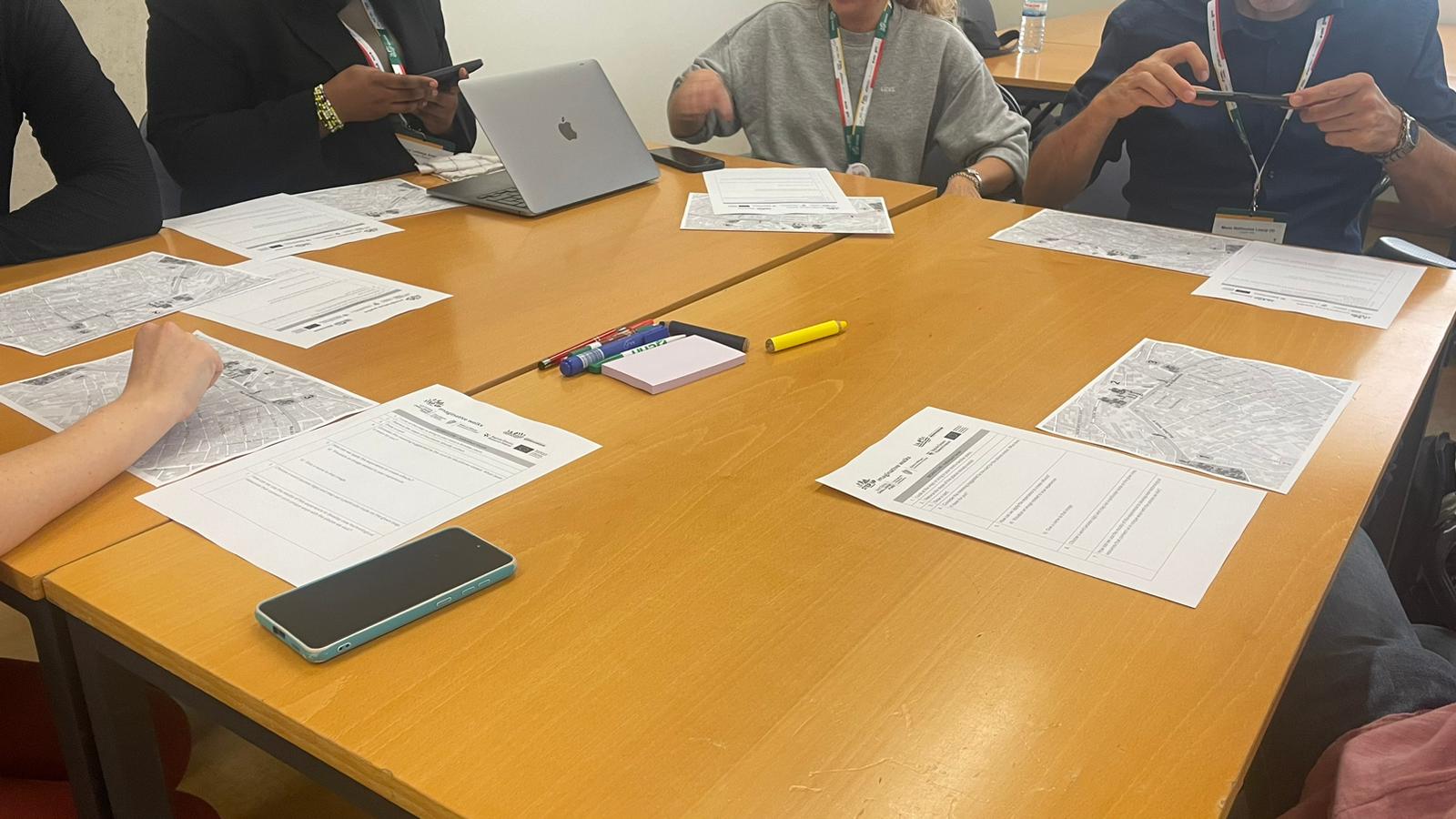
Dr Claire Nolan - School of the English and Digital Humanities
Dr Claire Nolan is a postdoctoral researcher for the Ports, Past and Present project. Drawing on her academic and professional background in both archaeology and psychotherapy, her research explores the social and eco-literal value of the historic environment. It seeks to gain a greater understanding of how heritage assets directly influence individual lived experience, wellbeing, environmental awareness and climate resilience.
Claire’s PhD research (University of Reading, UK) investigated the potential of the historic environment to support wellbeing, employing qualitative, phenomenological methods to explore the therapeutic value of the prehistoric landscapes of Avebury, Stonehenge and the Vale of Pewsey, UK in the present day. She has since published a number of papers on this topic, including the co-authored Historic England (2018) Report, Wellbeing and the Historic Environment.
Claire’s current work is focused on: the power of cultural heritage to ground and create meaning for individuals and communities; climate heritage and the potential for reflective engagement with heritage narratives to promote environmental literacy and ecotherapy; strategies for mindful heritage engagement and learning; and collaborative community heritage. Other research interests include: the value of heritage in post-colonial/colonial societies; access to cultural heritage and the protection of ancient monuments.
Email: clairenolan@ucc.ie
Dr Jemima Hodgkinson - School of Languages Literatures & Cultures
Bio:
Jemima Hodgkinson received her PhD in French from the University of Liverpool, where her research compared the black-edited press cultures of New York and Paris during the 1920s and 1930s. She was awarded the 2022 Atlantic Studies Early Career Prize for her article ‘The Mediated Text: Transatlantic Circulation among Periodicals of Interwar African American Poetry’. Her latest article, ‘Pour constituer une “Bibliothèque de Littérature Nègre”’ (Francosphères, 2023), assesses the project of Jewish-American bibliophile Arthur B. Spingarn to build a library of black literature and studies the reception of his work by the Haitian Indigenist journal La Relève.
Research:
My research highlights the unique role played by newspapers and magazines in the cultural development of the transatlantic African diaspora during the 1920s and 1930s. During this fellowship, I will be preparing a monograph in which I argue that the defining aspect of the press was its dialogic form: that is, its ability to place people, cultural eras, and geographical areas in textual dialogue with one another. Taking five press titles – two African American magazines based in New York City, and three Francophone Caribbean journals based in Paris – and treating them as examples of broader trends, I consider the pioneering social visions of their editors – understudied figures including Charles S. Johnson and Maurice Satineau – and their respective beliefs in the creative arts to effect social and political change. I then discuss how these editors harnessed the dialogic form of the press in such a way as to develop new and syncretic forms of black culture, stimulating an intellectual dialectic among contributors that would help realise autonomous American and French black traditions in the modern era.
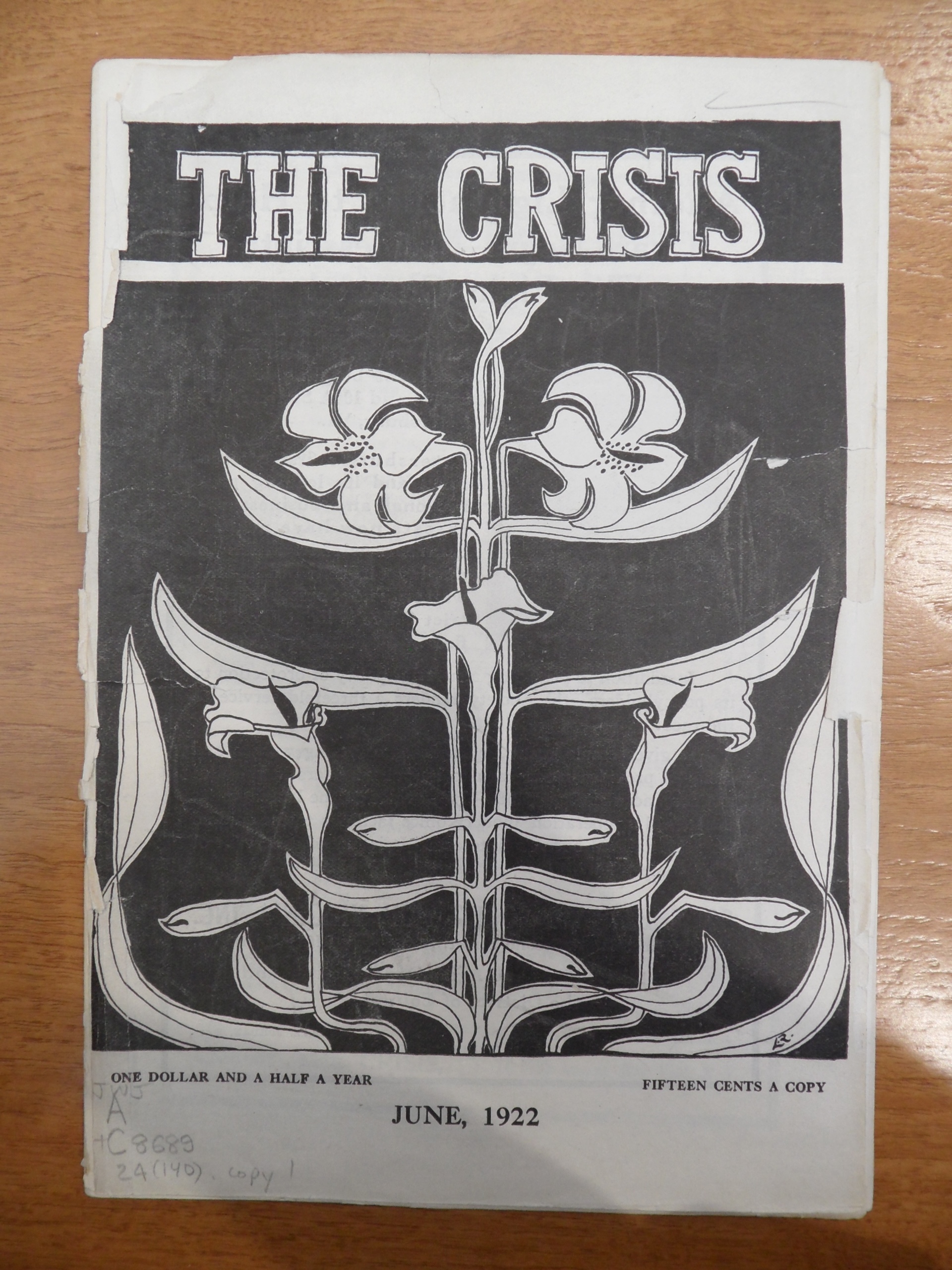 ‘The Crisis’ (Image source: James Weldon Johnson Collection, Beinecke Rare Book and Manuscript Library)
‘The Crisis’ (Image source: James Weldon Johnson Collection, Beinecke Rare Book and Manuscript Library)
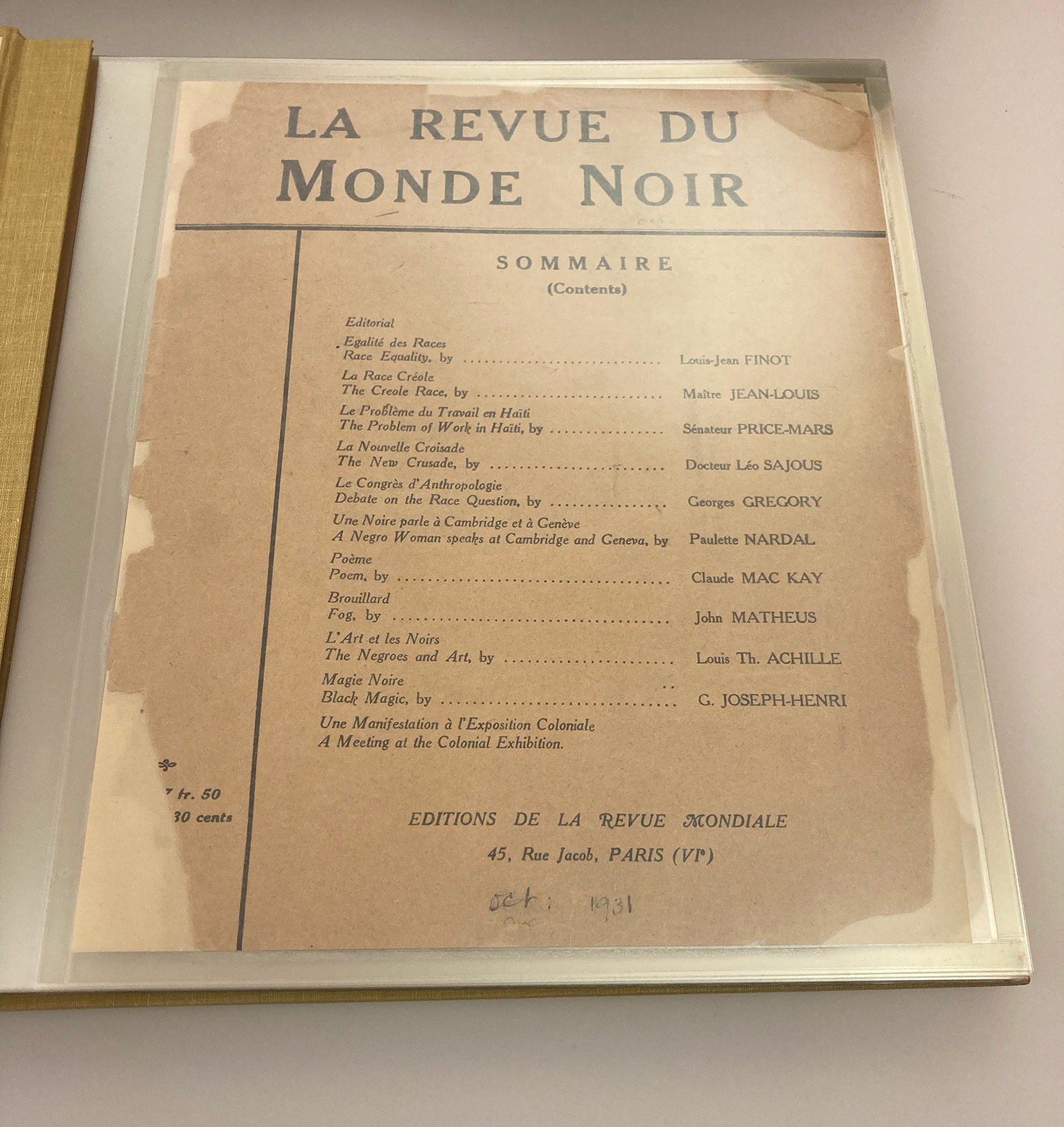
‘La Revue du Monde Noir’ (Image source: Schomburg Center for Research in Black Culture, New York Public Library)
Dr Shyamasundar Lakshmipuram Bharathanarayan - School of Film, Music & Theatre
Shyam is a Research Fellow at the Department of Music, UCC and part of the ERC CIPHER project. This project aims to revolutionize research on intertextualities, translation, and knowledge production in Hip Hop, globally.
With a PhD earned at VTU, India, his expertise runs deep in the realms of AI and Big Data. Before linking up with the CIPHER crew in May 2023, he lent his expertise to the oil and gas industry with AIET, rolled with the future in self-driving robot cars at CSIR-4PI, comprehensive research in sentiment analysis at CMRIT and served as a lecturer at MCE, Hassan.
Dr Philip Murphy - School of Society, Politics and Ethics
Bio:
Dr Philip Murphy is a post-doctoral researcher in the Department of Government and Politics, University College Cork (UCC). As an IRC funded scholar, his doctoral thesis researched the socialisation of political efficacy among adolescents. His publications and research interests include youth political engagement, political socialisation, political education, and deliberative practice. In a previous post as Lecturer in Government and Politics at UCC he coordinated and lectured undergraduate and postgraduate modules on; Irish, European, and international politics, research methods, political engagement, political and governance theory, democratic innovations, and dissertation/thesis management. He has supervised numerous undergraduate and postgraduate research dissertations on above topics.
Research:
Jean Monnet Teacher Training (ACTIVEUC 2022-2025) and Jean Monnet Chair in Active European Citizenship (KM-KEU 2021-2024). Both Erasmus+ projects are based in the Hub in Active European Citizenship, coordinated by Dr. Emmanuelle Schon-Quinlivan in UCC.
Project Outline
The JM TT develops tools for education on European issues. The project does this by creating training for teachers, and content for students, at primary and post-primary level. It emphasises deliberative practice to empower young citizens. It involves online and in-person engagement with students and teachers in Ireland and across the European Union.
The JM Chair develops opportunities for engagement on European issues. The project does this by coordinating and collaborating on; active citizenship projects at primary and post-primary level, deliberative teaching and events at third level, and public engagement events. It emphasises deliberative practice to empower young citizens. It involves online and in-person engagement with students at all education levels and the wider public through community events.
Research and publications on both projects focus on political efficacy, deliberative practice in political education and engagement, and the socialisation of political identity.
Contact Details
Dr. Philip Murphy, Department of Government and Politics, 2nd Floor, O’Rahilly Building, University College Cork.
Email: philip.murphy@ucc.ie
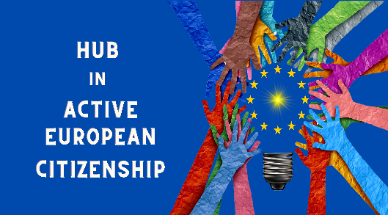
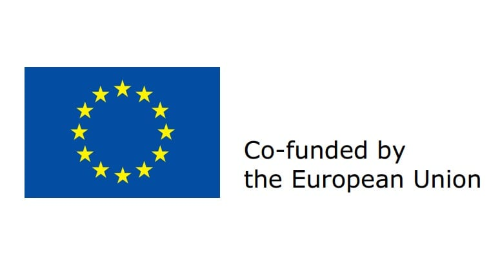
Dr. Oleksandr Korotaiev - School of Society, Politics and Ethics
Bio:
Dr. Oleksandr Korotaiev holds a PhD in History from Poltava National Pedagogical University and is a Senior Lecturer at Kryvyi Rih State Pedagogical University. Since 2019, he has been part of the Ukrainian national program Rehabilitated by History, a scholarly documentary book series endorsed by the Government of Ukraine.
Research:
Dr. Oleksandr Korotaiev’s research centers on the history of totalitarian regimes in the Socialist bloc, with a particular focus on the Soviet intelligence services and their operations targeting Protestants in Soviet Ukraine. He brings extensive experience in archival research, including work with the Archives of the Security Service of Ukraine, which houses one of the largest declassified collections of Soviet secret police documents. His work also involves interviewing victims of political repression and former KGB officers, contributing to a deeper understanding of these historical events.

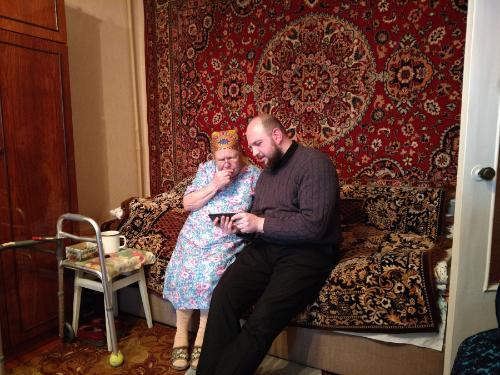


 ‘The Crisis’ (Image source: James Weldon Johnson Collection, Beinecke Rare Book and Manuscript Library)
‘The Crisis’ (Image source: James Weldon Johnson Collection, Beinecke Rare Book and Manuscript Library)



